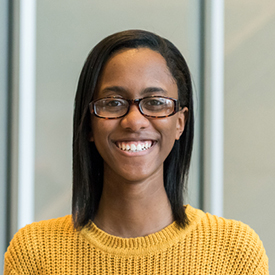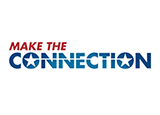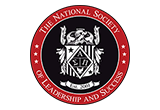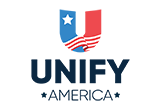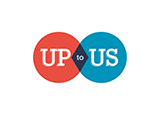2023 Civic Learning and Democratic Engagement Meeting
Learn more.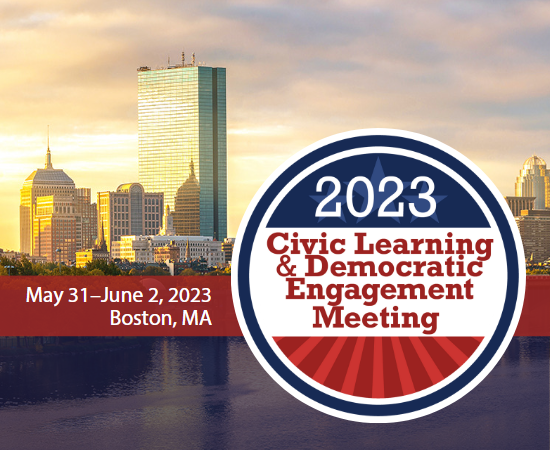
Ensure that graduates are prepared to be the informed, engaged citizens our communities and democracies need.
Our 2023 Civic Learning and Democratic Engagement Meeting (CLDE23) will facilitate exchanges of knowledge and develop a sense of community around our shared civic learning and democratic engagement work. As a community we have adopted the CLDE Theory of Change and strive to create effective strategies and models that strengthen civic learning and democratic engagement.
Who should participate?
- Faculty
- Students
- Senior campus leaders
- Student affairs administrators
- Community partners
How will you benefit?
- Learn strategies to integrate equity, justice, diversity, inclusion and accessibility
- Connect with colleagues sharing best practices to incorporate experiential learning opportunities and enact pedagogical and programmatic strategies
- Hear from speakers focused on balancing voter engagement with broader civic engagement
- Discover ways to implement and assess institution-wide civic learning objectives
- Strengthen community and campus integration of civic engagement
- Connect with a community of students, faculty and campus leaders focused on democracy, social justice, belonging and equity minded leadership.
Program Highlights
This event convenes a diverse range of stakeholders on civic learning and democratic engagement.
Participants will have opportunities to network and develop their civic-minded thinking and practices through plenary sessions, site visits, concurrent sessions, posters, receptions, pre-conference workshops, and working meetings.
Schedule at a glance
| 9 a.m.–12 p.m. | Pre-conference session: From Hyperlocal to Global Civic and Community Engagement A locally-rooted global movement is necessary to advance higher education civic and community engagement and create more just, sustainable, democratic societies. Participants will hear about efforts to build such a global movement, as well as learn from a few concrete examples of universities that are engaged in sustained, place-based, mutually beneficial partnerships with their local communities. Participants will be guided through individual reflection and small group discussion to think through how they could work with local, national, and global partners to advance such efforts across their own campuses.
|
| 9 a.m.–12 p.m. | Pre-conference session: Protests, Politics, and Participation: A Closer Look at Civic Engagement on HBCU Campuses
The pandemic that gripped the world in the spring of 2020 directly impacted how institutions of higher education, HBCUs included, civically engaged students. Research conducted evaluated speech, activism, and civic engagement on the campuses of HBCUs, particularly during the social and racial unrest of the summer of 2020 and the polarizing general election in fall of 2020. Data collection and review activities were completed in June 2021 through March 2022 to (1) establish sociopolitical context, (2) understand HBCU institutional capacity, (3) identify strategies used for civic engagement, and (4) identify key findings.
|
| 9 a.m.–12 p.m.
|
Pre-conference session: Skill Development in Disinformation and Digital Literacy
In line with CLDE’s core work of “theory and change,” this pre-conference workshop features an interactive workshop involving a discussion about mis/disinformation and digital literacy along with participant engagement. The goal of the session is to better understand mis/disinformation in order to identify it and integrate awareness and literacy into teaching moments.
|
| 1 p.m.–5 p.m. | Site Visit: The Civic Legacy of the Kennedys In one afternoon, explore both the John F. Kennedy Presidential Library and Edward M. Kennedy Institute for the U.S. Senate! Our group will enjoy a box lunch served at the library cafe. After lunch, our group will have a private tour of the library, exploring President Kennedy’s time in the White House, the press conference and space race galleries, Mrs. Kennedy’s restoration work, Robert Kennedy’s role as attorney general, a new exhibit on World War II, and much more. Then, our group will walk next door to the Edward M. Kennedy Institute for the U.S. Senate where, within the full-scale replica of the United States Senate Chamber, our group will participate in a U.S. Senate session and a live floor debate on a piece of legislation. (Lunch included in price.) |
| 1 p.m.–5 p.m. | Site Visit: Embracing Boston’s Black History Our afternoon will begin with a visit to The Embrace, the new sculpture honoring the time that Dr. Martin Luther King, Jr. and Coretta Scott King spent in Boston, a city where they met while pursuing degrees at Boston University and the New England Conservatory. We will continue on to a guided tour of The Black Heritage Trail, a 1.6-mile trail of 14 sites throughout Boston’s Beacon Hill neighborhood. The trail showcases the homes, commemorations, and community buildings of Boston’s largest Black pre-civil war community, located primarily on the neighborhood’s northern slope. Highlights of the trail include the African Meeting House, the oldest extant Black church building in the U.S. We will end our afternoon with a guided tour of the Museum of African American History, which will begin at the Abiel Smith School, the oldest public school in the U.S. that was created exclusively to educate Black children. This session is generously sponsored by GivePulse. |
| 8 a.m.–9:30 a.m. | Carnegie Elective Classification for Community Engagement CLDE Focus Group
|
| 8:30 a.m.–9:30 a.m. | CLDE Orientation |
| 10 a.m.–12 p.m. | Community College Civic Engagement Open Forum
|
| 10 a.m.–12:30 p.m. | ADP Meeting + 20th Anniversary Lunch |
| 1:30–3 p.m. | Opening Plenary |
| 3:10–4 p.m.
CONCURRENT SESSIONS |
Building Blocks: Civic Engagement + Community
|
Extending Empathy and Trust: Who to Let In, Who to Keep Out?
|
|
Ripples Through Time: Hawaii’s History of Weaponized Education and its Impact on Community Engagement Today
|
|
Rutgers-Camden Public Health AmeriCorps: Best Practices Engaging in Social Determinants of Health
|
|
Structurally Dynamic Public Spheres: A New Practical Theory for CLDE
|
|
Student-Centered Civic Research Communities: How Student Research Supports Campus Civic Initiatives
|
|
The Dialogue Dilemma on Campus
|
|
Training Future Community Leaders: A Project-Based Approach at Rutgers-Newark
|
|
When Students Lead: Supporting and Investing in Pathways for Civic Engagement
|
|
| 4:10–5 p.m.
CONCURRENT SESSIONS |
Ask the Class: Are you ready for Business Entities to Vote?
|
Building Campus Culture for Civic Engagement: Structures and Planning
|
|
Culture Shift: Engaging All Stakeholders Through Deliberative Dialogues
|
|
Developing a Statewide Partnership to Enhance Democratic Engagement
|
|
Helping Students Become Confident Voters: A Conversation Guide
|
|
Journalism and Democracy: The role of a vibrant press across our nation
|
|
Lonely Classroom: Building an Online Community for Digital Literacy and Narrative Justice
|
|
Re-Envisioning Civic Engagement in Promotion and Tenure
|
|
Working Toward Anti-racist Community Engaged Pedagogy: A Case Study
|
|
| 5:15–6:30 p.m.
POSTER SESSIONS |
A Pathway for Undergraduate Civic Learning at UNC Charlotte
|
Civic Solutions: Student Policy Proposals
|
|
Counternarratives of Service Learning and Community Enagement
|
|
Creating Experiential Civic Learning Opportunities in Social Work Field Education
|
|
Diversifying Civic Engagement on Campus
|
|
Engaging the Emotions in Civic Education
|
|
How CSUSB Utilized Three Divisions and Friendly Competition to Encourage Civic Engagement.
|
|
Information Literacy, Active Learning and Civic Education at a Federal Courthouse
|
|
Inspiring Us, Compelling Us: Historic Tennessee Women’s Stories Push Students to Action
|
|
Institutionalization of ADP at AASCU Institutions: A First Look
|
|
Promoting Connection of International Students through Community Based Tutoring in Houston
|
|
RU Running?: Hosting a Political Campaign Training for Undergraduate Students
|
|
Spotlight on Shelter Crew: A Housing Focused Experiential Learning Program
|
|
Weaving Civic Engagement into the Campus Culture: Modeling a Voter Education Initiative
|
|
| “How Nonpartisan Voter Guides Can Help Your Students Overcome Voter Apathy and Cynicism” by Payge Hardy (Nonpartisan Voter Guides) |
| 8:30–9:20 a.m.
CONCURRENT SESSIONS |
A place to call home: Anchoring institution-wide CLDE/ADP initiatives in Honors programs
|
Creating and Supporting Intentional Voter Engagement Plans executed by Empowered Student Leaders
|
|
To Persuade or Not Persuade? Determining Productive Forms of Rhetorical Engagement
|
|
DemCap Analytics: Exploring the Relationship between Democracy and Capitalism through Data
|
|
Designing a Student Leadership Program to Increase Civic Skills and Advocacy Education.
|
|
Engaging students in mental health advocacy by collaborating with state-level advocacy groups
|
|
Experiential Learning is Not Just an Activity!
|
|
Removing Barriers: Crafting UndocuFriendly Civic Engagement Opportunities
|
|
State-Level Voting Laws: Current Policy Landscape and Advocacy Strategies
|
|
| 9:30–10:20 a.m.
CONCURRENT SESSIONS |
Advancing Civic Dispositions Through Discipline-Specific, Active Civic Learning and Exploration
|
Alleviating Faculty Concerns about Civic Learning in a Contentious Environment through Policy
|
|
Breaking the Controversy: Integrating Civil Discussion on Campus and in Classrooms
|
|
Candidates in Our Backyard: Transforming Candidate Forums into Mutual and Reciprocal Spaces
|
|
Creating and Using Shared Values to Guide Community-Engaged Work
|
|
Institutionalizing Civic/Community Engagement: Reflections from an ADP Cohort
|
|
Strategies for Implementing the Constructive Dialogue Institute’s Perspectives into Undergraduate Courses
|
|
The Power of Collaborations: A Multi-Perspective Conversation
|
|
Up to Us Case Competition: Students Solving Complex Policy Challenges Through a Fiscal Lens
|
|
| 10:30–11:20 a.m.
CONCURRENT SESSIONS |
2013-2023: 10 Years of the National Study of Learning, Voting, and Engagement
|
A Conversation with the Core Curriculum
|
|
A Public Act of Love: Re-imagining Community-Campus Partnerships to Strengthen Democracy
|
|
Bridging the Divide for Students through Unify America
|
|
Developing Equitable Community Partnerships through Critically Engaged Civic Learning (CECL)
|
|
Empowering Relationships to Serve the Public Purpose
|
|
How Cross-Campus Deliberative Dialogues Can Bridge Divides, Improve Student Reasoning Abilities
|
|
Institutionalizing Social Justice: Examples of Collaborative Approaches at Towson University
|
|
Powerful Symbioses: Identifying Partners for a More Dynamic Civic Education Ecology
|
|
| 11:30 a.m.–1 p.m.
|
Lunch (provided by conference) |
Leaning into Politics: A Discussion with Authors
|
|
| 1–1:50 p.m.
CONCURRENT SESSIONS |
A National Imperative: Reclaim the Civic Mission of California Community Colleges
|
Balancing Civic and Community Engagement: A North Carolina Public and Private Approach
|
|
Bridge Building in Higher Education: Teaching Skills for a Thriving Diverse Democracy
|
|
Centering Equity in Policy Analysis: Racial Equity Dividends in Healthcare Policy
|
|
Maximizing Student Leaders through Autonomy: Faculty Development Strategies
|
|
Navigating the Network of National Voter Engagement Resources Together
|
|
The Symbiotic Relationship between Reinventing Democracy and Academic Freedom
|
|
This is Real: Two Civics Courses Grounded in Students? Everyday Experiences
|
|
We are Citizen Scholars: Strengthening Community and Civic Engagement
|
|
| 2–2:50 p.m.
CONCURRENT SESSIONS |
Building Community through Dialogue
|
Communities of Practice to Address Dilemmas of Civic Learning and Democratic Engagement
|
|
Dinners for Democracy: A Peer-to-Peer, Issue-Based Approach to Student Voter Education
|
|
Engaging K-12 Teachers in Civic Engagement Programming
|
|
From Knowledge to Praxis: Student Barriers and Catalysts to Critical Thinking
|
|
From Voters to Volunteers: Expanding On-Campus Civic Engagement Through Voter Registration Efforts
|
|
Generating Organic Relationships: Integrating DEI into Community Engagement Work
|
|
Trends and Approaches in Supporting College Student Mental Health and Wellness
|
|
The End of Service Learning
|
|
| 3:30–5 p.m. | Innovations in Democracy
|
| 5:15–6:30 p.m. | Private Reception: Civic Solutions Private Reception: Constructive Dialogue Institute |
| 8:30–10 a.m.
WORKSHOP |
AAPI Student Empowerment: Creating the Conditions for Student Organizing and Democratic Participation
|
Building Resilient, Inclusive Communities of Knowledge (BRICK) Workshop
|
|
Civic Solutions: Student Videos of their Fiscal Policy Proposals
|
|
Deliberative Dialogue Leadership Training
|
|
Equity-Centered Community Engagement: Enacting Strategies for Justice, Solidarity, & Advocacy
|
|
Hosting Successful Local, State, & National Candidate Debates & Voter Guides
|
|
In Their Own (Photo)Voice: Juntos Luchamos – Latinx Student Civic Engagement
|
|
Integrating Equity-based Community Engagement in Media Literacy Education
|
|
Reframing Political Discourse: The 4Quad Ideology Diagnostic
|
|
| 10:15–11:30 a.m. | Closing Plenary
|
Featured speakers
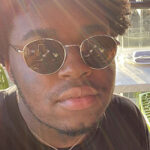
Menelik
Cooper-Caraballo
Student
Rutgers University Newark (NJ)

Janett
Cordovés
Senior Program Director of the Presidents Consortium
Institute for Citizens & Scholars

Timothy
Eatman
Dean of the Honors Living-Learning Community
Rutgers University-Newark (NJ)
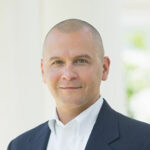
Abraham
Goldberg
Associate Professor, Political Science
James Madison University (VA)
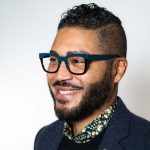
Imari Paris
Jefferies
Executive Director
Embrace Boston

Steven
Koether
Assistant Professor – Biological Sciences; ADP Coordinator
Sam Houston State University (TX)
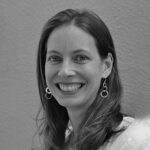
Caroline
Lee
Professor of Sociology/Faculty Director, Landis Center for Community Engagement
Lafayette College (PA)
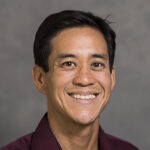
Penn
Loh
Associate Chair, Senior Lecturer
Tufts University (MA)
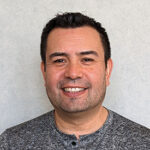
Rene
Mardones
Director of Community Organizing
Dudley Street Neighborhood Initiative

Na’tisha
Mills
Program Manager
Embrace Boston
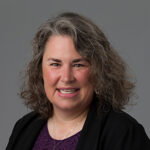
Leah
Murray
Director, Olene S. Walker Institute of Politics & Public Service
Weber State University (UT)
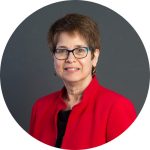
Felice
Nudelman
Associate Vice President of Academic Innovation and Transformation
AASCU
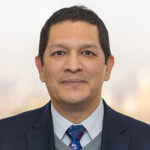
Noe
Ortega
Commissioner
Massachusetts Department of Higher Education
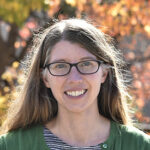
Allison D.
Rank
Associate Professor and Chair, Political Science
State University of New York at Oswego

Willie
Redmond
Professor of Economics, Chair of the Department of Marketing, and Director of International Business Programs
Southeast Missouri State University
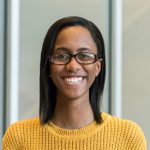
Markya D.
Reed
Operations Specialist
Johns Hopkins University (MD)

John
Saltmarsh
Visiting Fellow
Carnegie Foundation for the Advancement of Teaching
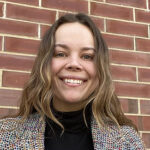
Avery
Spranger
Graduate Teaching Assistant
Illinois State University

Terri
Taylor
Strategy Director for Innovation and Discovery
Lumina Foundation
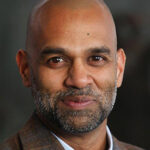
Rajiv
Vinnakota
President
Institute for Citizens & Scholars
Registration Fees
The registration fee includes all regular program sessions. There is no difference in registration rates for AASCU or NASPA members.
| Attendee type | Early Bird Rate (Jan. 9–April 29) |
Regular Rate (April 30–May 20) |
Late (after May 20) |
|---|---|---|---|
| Individuals | $525 | $595 | $665 |
| Students* | $360 | $360 | $360 |
| Teams** four or more individuals from the same institution |
$475 per person | $545 per person | Not Available |
*Registration rate for students is for undergraduates and full-time graduate students.
**Team registration fee available until May 20, 2023. To register your team members, contact Jill Dunlap.
Please note that you must register your team together using one credit card per institution to access the team rate.
No refunds will be given for individuals that purchase their registration individually in order to apply the team rate at a later date.
CLDE 2022 by the numbers
350+
Number of attendees who joined us for CLDE 2022.
94%
Attendees who reported learning new information during the conference.
92%
Attendees who felt the information presented during the conference would be immediately applicable to their campus and community work.
Testimonial
Accommodations
Boston Park Plaza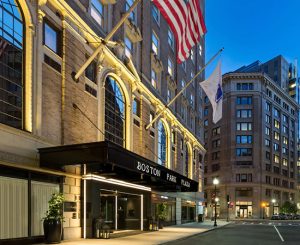
50 Park Plaza
Boston, MA 02116
$259 USD per night. The group rate will be available for booking in January 2023. The last day to book the group rate will be Tuesday, May 9, 2023.
Please note, the best experience making reservations is on a laptop or desktop computer. Reservation requests for three days pre- and post-official conference dates are subject to availability and may be made directly with the hotel by contacting reservations@bostonparkplaza.com.
Make reservations
AASCU is committed to the health, safety and well-being of all attendees at our gatherings. We follow all local rules and CDC guidance and closely monitor conditions related to COVID-19 and other public health emergencies. Attendees at all AASCU events agree to adhere to the following health and safety protocols.
Before leaving home
- AASCU strongly encourages all participants to be fully vaccinated. The CDC Vaccines website provides definitions of “Fully Vaccinated” and “Up To Date”.
- Stay home if you feel unwell or have any COVID-19 symptoms or test positive for COVID-19. We recommend attendees wear masks while traveling to and from the event and follow COVID-19 safety practices in the days leading up to the event.
- We strongly encourage attendees to take a rapid antigen COVID-19 test before traveling and before arriving to AASCU convenings.
Onsite during the event
- Masks are recommended and will be available at the registration desk.
- If you are experiencing cold or COVID-19 symptoms please be respectful and wear a mask.
- Self-administered COVID-19 rapid antigen tests will be available at the registration desk. We encourage participants test themselves upon arrival before joining the conference.
- Wash hands often with soap and water for at least 20 seconds, or use an alcohol-based sanitizer with at least 60% alcohol
- Avoid touching eyes, nose, and mouth with unwashed hands
- Cover your nose and mouth when coughing or sneezing. Throw used tissues in the trash.
- Clean and disinfect frequently touched objects and surfaces using a regular household cleaning spray or wipes.
- If you feel unwell, develop symptoms of COVID-19, or test positive for COVID-19 at any time during the convening, seek medical care and do not attend the meals or gatherings.
- If you test positive during the conference, please notify AASCU staff by emailing meetings@aascu.org.
AASCU reserves the right to modify these policies and procedures at any time given the rapidly changing nature of any current and ongoing public health emergencies.
All meetings and conferences sponsored by AASCU are inclusive and accessible to all individuals, including individuals with disabilities. Please request accessibility services when you register and contact us if you need auxiliary aids or services.
By participating in an AASCU conference, you are automatically authorizing AASCU and its employees and its Communications department to use your name, photograph, voice, or another likeness for purposes related to the mission of AASCU, including but not limited to publicity, marketing, websites, social media vehicles, and any other AASCU-related electronic forms or media for the promotion of AASCU and its various programs.
